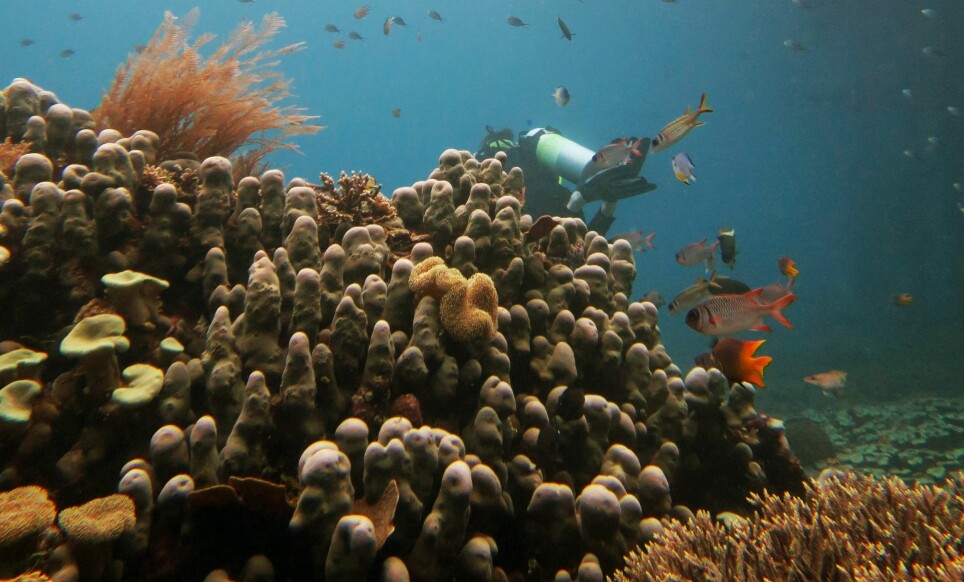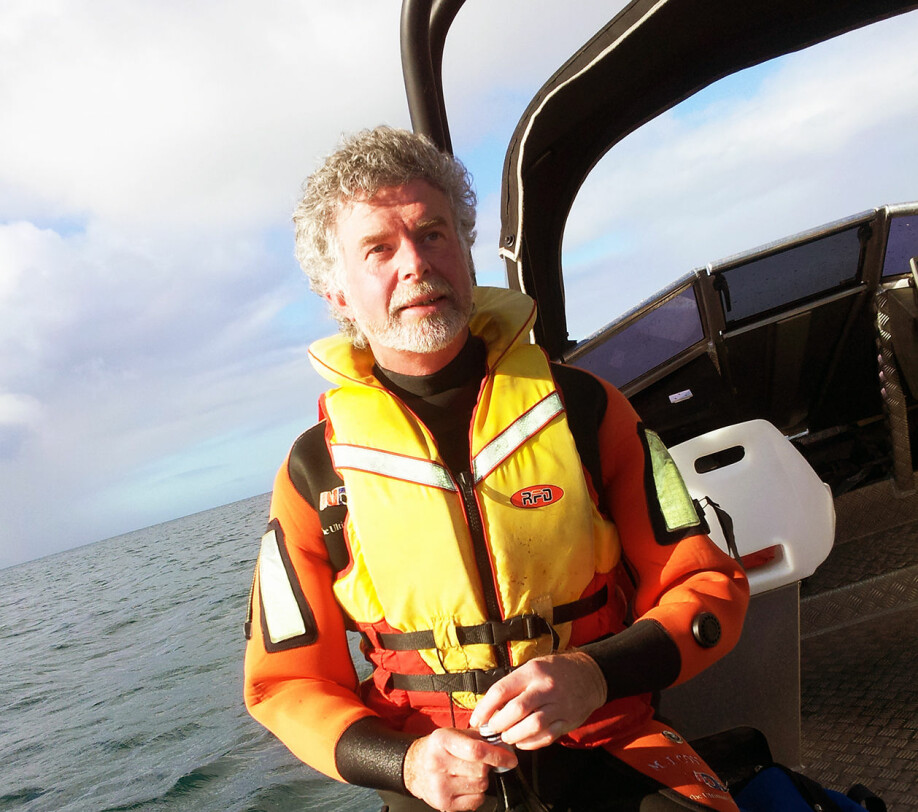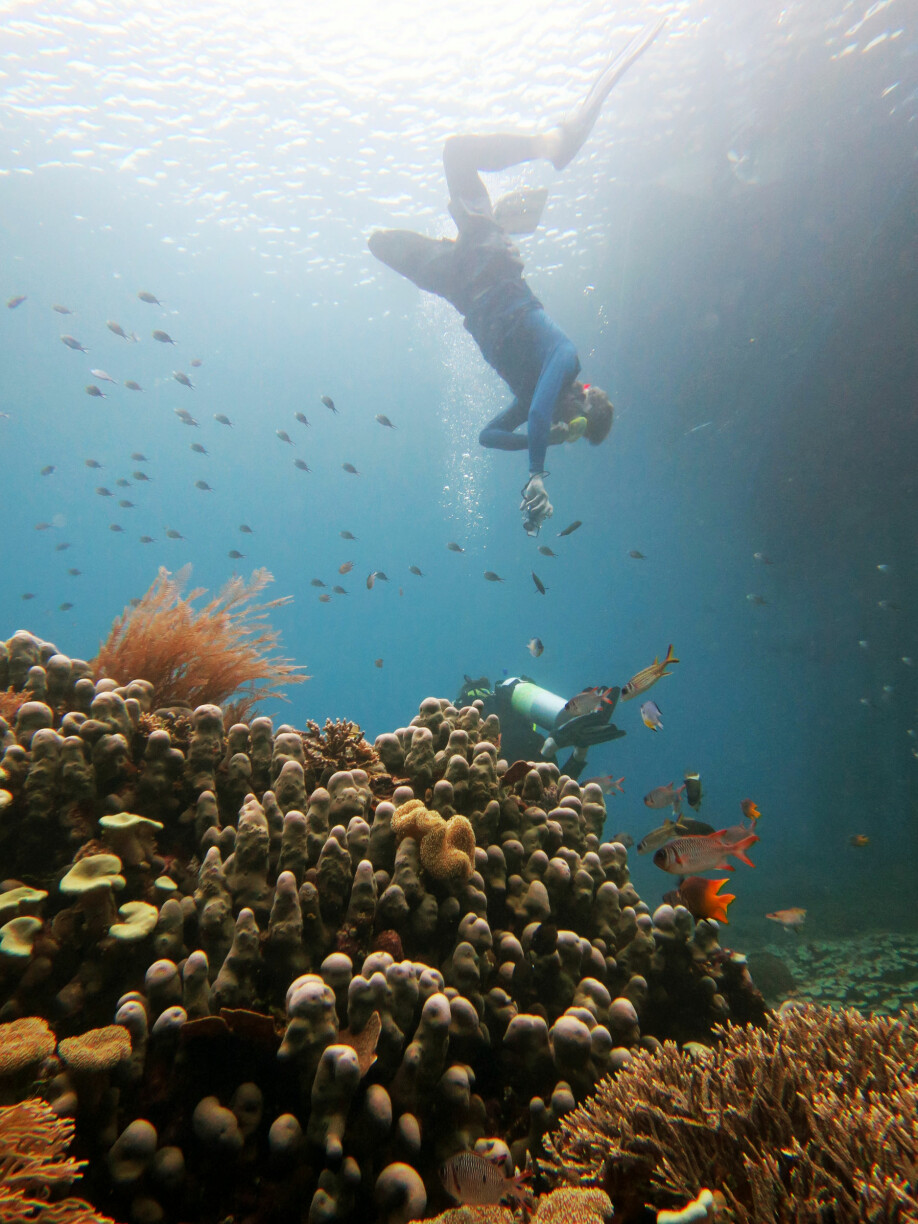THIS ARTICLE/PRESS RELEASE IS PAID FOR AND PRESENTED BY Nord University - read more

New study confirms climate change driving global movement of marine species
“More tropical species are shifting their geographic range polewards into the Northern hemisphere due to warmer ocean around the equator," says Professor Mark John Costello at Nord University.
The study, which is published in the American sciences magazine PNAS, confirms as predicted by climate warming, the number of species has decreased at the equator and increased in the sub-tropics since the 1950s.
The study was the culmination of lead author Chhaya Chaudhary’s PhD at the University of Auckland, where Professor Mark J. Costello led a marine research group.
It shows for the first time, at a global scale and across all kinds of species, that marine life has been changing its distribution away from the equator in direct response to climate change.
“This was the case across all 48,661 species in our study, split into those living on the seabed (benthic) and in open water (pelagic), fish, molluscs and crustaceans,” says Costello, who is a co-author of the PNAS-article.

Tropical oceans too hot for many species
He emphasizes that this study is the first to show it is a general pattern, happening over all kinds of marine species.
“We have known ocean temperature has been rising due to climate change since 1980s. It has also been noticed that some species have been moving their geographic range in concert with this. Now we know that this geographic range shift is happening between the tropics and polar latitudes. It is interesting that Antarctica is also always cold and has been for a long time and projected to remain so. However, the Arctic has more variable seasonal temperatures and is warming above the global average.”
Previously, the tropics were considered stable and an ideal temperature for life because so many species occur there.
“Now, we realise that the tropics are not so stable and are increasingly too hot for many species,” says Professor Costello.
The results showed that pelagic (open water living) species had shifted poleward in the northern hemisphere more than benthic (seabed associated).
Costello hypothesises that in the case of pelagic species, sitting within a body of water, individuals may shift their range in their lifetime.
In contrast, because many benthic species move little in their life-time, or only as plankton larvae for a few days or weeks, a shift in the species range is more due to generational turnover where a population declines in one location (such as the equator) but survives better in another (subtropics).
Biodiversity dips as sea temperatures rise
Last year, Professor Costello co-authored a study published last year in PNAS showing that while marine biodiversity peaked at the equator during the last ice age, 20,000 years ago, that it had declined there before industrial global warming.
“That study used fossil records of marine plankton buried in deep sea sediments to track the change in diversity over thousands of years.”
By the end of the 21st century, tropical diversity may decrease to levels not seen for millions of years if our future aligns with the 'business-as-usual' CO2 emissions, Professor Costello adds in the news report from the University of Auckland.
This latest study published in PNAS is on a decadal timescale.
“It shows this flattening has continued in the past century, and the number of species now dips at the equator. The study, and others in progress, show that the number of marine species declines once the annual mean sea temperature for a given latitude is above 20 to 25 o C and varying with different kinds of species.”
As one of the Lead Authors on the current 6th Assessment Report of the International Panel on Climate Change (IPCC), Professor Mark J. Costello says the findings are significant.
“We can predict the general shift in species diversity, but because of the complexity of ecological interactions, it is unclear how species’ abundance and fisheries will change with climate change.”

Topic species shifts polewards to the north
There are no constraints to most marine species movements in the oceans, except in enclosed seas like the Mediterranean where they may become trapped.
“Species are shifting their geographic range away from the equator, and both the southern and northern edges change. But the lack of a similar range shift of pelagic species in the southern hemisphere is because ocean warming is greater in the northern than southern hemisphere,” Costello says.
Why do not some amount of the tropical marine species migrate polewards to Antarctica, instead of, polewards into the Northern hemisphere?
“There is a well-documented shift of species southwards along the east coast of Australia. We do also see an increase in species in the southern hemisphere subtropics due to a shift of species away from the equator southwards. However, the powerful very deep Southern Ocean seems to be a barrier to species reaching Antarctica. Half of the marine species around Antarctica are endemic (occur nowhere else) indicating its isolation for millions of years from other continents.”
“Rise in sea temperatures disrupts reef ecosystems”
Can tropical marine species adapt (genetically) to higher sea surface temperature instead of moving?
“No, it is a happening too fast. And occasional heatwaves have caused catastrophic mortalities (coral bleaching, kelp die back). There is some evidence that within coral communities some species and clones may be more tolerant of warmer temperatures than others, and those in deep water may escape the worst of heatwaves. So the species will survive, but there would be major disruption of the reef ecosystems due to high mortalities and changes in species composition,” says Professor Mark John Costello, Faculty of Aquaculture and Biosciences, Nord University.
Reference:
Chhaya Chaudhary et.al.: Global warming is causing a more pronounced dip in marine species richness around the equator, Proceedings of the National Academy of Sciences, 2021. (Summary)
See more content from Nord University:
-
One snail lays eggs, the other gives birth to live offspring. What has happened?
-
Can salmon live well with smart tags in their bellies?
-
Oil from a microbe may become important in the fight against cardiovascular diseases
-
Animals on the seabed of the Arctic Ocean are barely affected by the seasons
-
Bladderwrack and serrated wrack provide unique insights into evolutionary history
-
Ocean heatwaves last longer in deep water





































